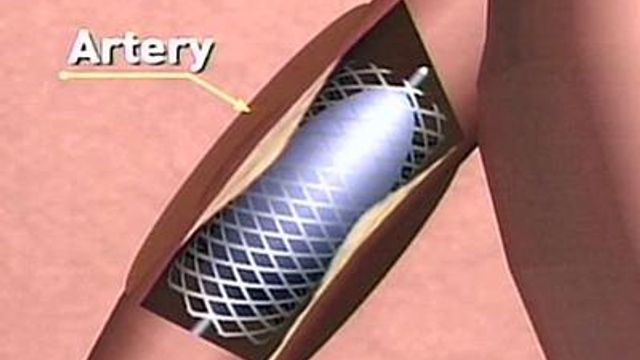Health Team
New Guidelines Issued for Stent Use
New guidelines about stent use mean doctors will have to be more selective about who gets them.
Posted — UpdatedRALEIGH, N.C. — There are new guidelines for stents, the tiny devices used to open clogged heart arteries. The new practices came after studies revealed a problem with drug-coated stents' causing blood clots. It means doctors will be more selective about who gets them.
Sherman Williford, 79, came to WakeMed for a catherization procedure to look for blocked heart arteries. His cardiologist is concerned about his unusually low blood pressure. It may be due to a blockage.
Williford said he may need a stent. He has never had one, but his 60-year-old son, J.B., got a drug-coated stent about two years ago.
"After checking me out, they said I was doing great with this new type of stent, and I'm satisfied," J.B. Williford said.
The older, bare metal stents open clogged arteries, but in about 20 percent of cases, scar tissue builds up around them, causing re-stenosis or re-clogging.
"Drug-eluding stents have reduced this to around 2 percent," said Dr. Tift Mann, a cardiologist at WakeMed.
However, recent studies showed that drug-coated stents, in a significant number of patients, led to blood clots.
To prevent clots, doctors used to prescribe blood-thinning medication like Plavix and/or aspirin for six to nine months after a stent was placed. It turns out that may not be good enough, though.
"This risk persists later than we previously had thought," Mann said.
New guidelines from the American Heart Association and the American College of Cardiology recommend blood thinners for a full year, but some patients cannot take blood thinners that long. For example, they may have other scheduled surgery during which blood thinners might cause bleeding problems.
Mann said more cardiologists will use bare metal stents in the patients that do not fit the new criteria for drug-coated stents.
"Whereas two years ago, we were using drug stents in 100 percent of patients, we're now probably 85 percent," Mann said.
If you do have a drug-coated stent, do not stop taking your blood-thinning medication without talking to your doctor and be sure to tell your dentist that you are on blood-thinning medication.
• Credits
Copyright 2024 by Capitol Broadcasting Company. All rights reserved. This material may not be published, broadcast, rewritten or redistributed.





